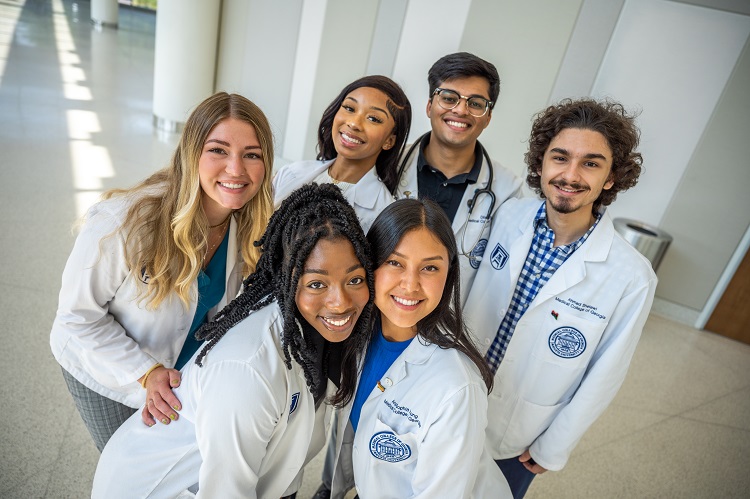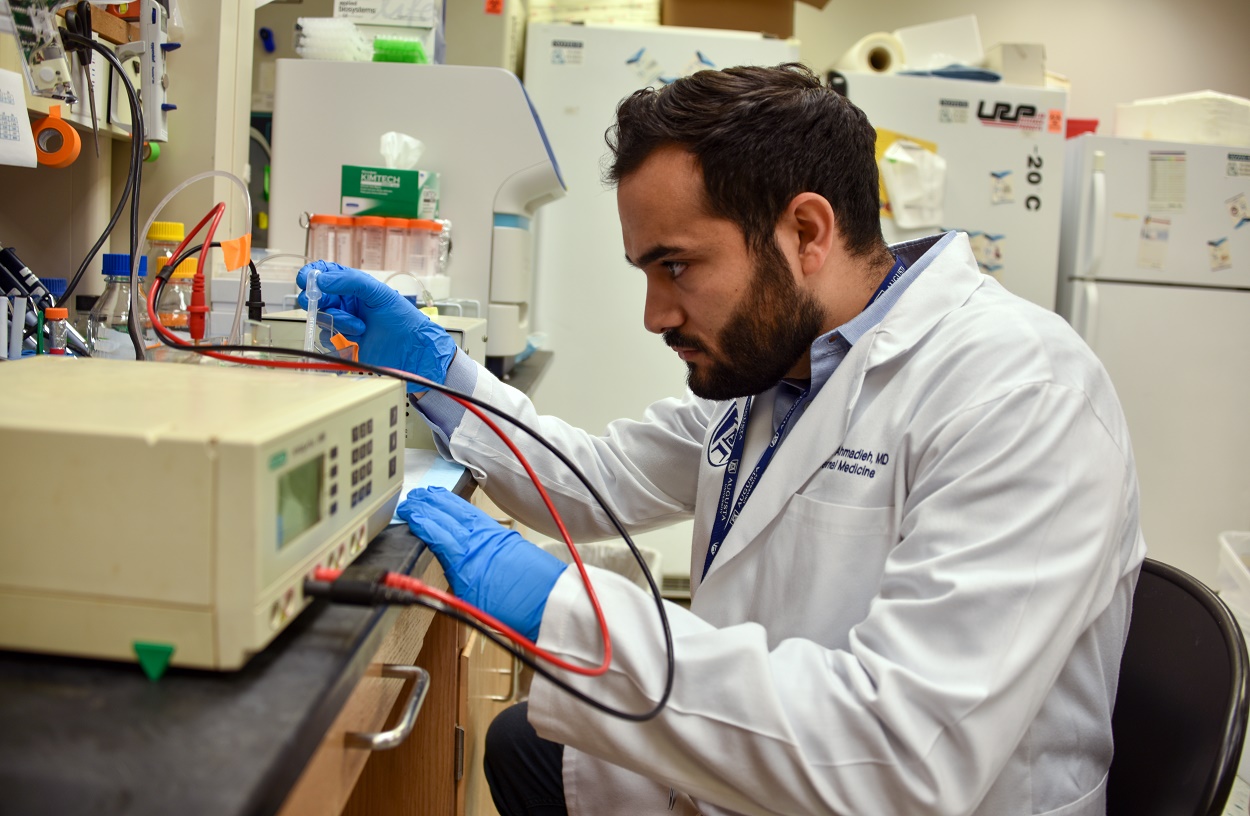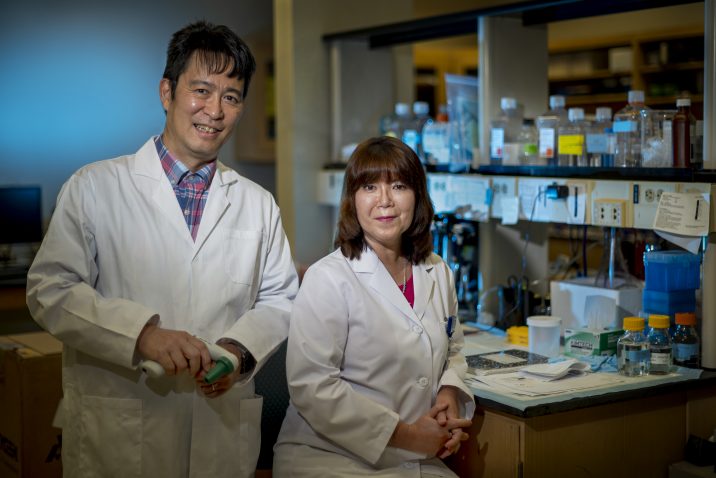Georgia Cancer Center researcher turning grief into hope
"Persistence and encouragement will help us go through the valleys," said Yan Cui, PhD.
The Medical College of Georgia has a nearly 200-year-old tradition of Great Doctors and Great Medicine.
Since 1828, the state's flagship medical school, with one of the largest student bodies in the nation, has been educating the next generation of physicians and physician researchers for Georgia and beyond.
The educational experience at MCG is anchored by the main campus in Augusta, and includes regional clinical campuses for third- and fourth-year students across the state and a second four-year campus in Athens in partnership with the University of Georgia. The medical school's third four-year campus in Savannah, in partnership with Georgia Southern University, will open in July 2024, enabling MCG's total enrollment to grow to 304 students per class. MCG’s statewide educational model offers students the opportunity to experience the full spectrum of medicine, from complex care hospitals to small-town solo practices.
Our innovative 3+ Curriculum also gives students the chance to tailor-make their educational experience. For a number of them, it provides a more efficient pathway into primary care. The majority spend their fourth year honing clinical skills, delving deeper into research or completing a dual degree, like an MD/MBA or MD/MPH.
Every year, MCG students — those who study at the academic medical center in Augusta, as well as those who study at one of our regional campuses — have a Match rate that is higher than the national average, earning residency positions at top-tier programs across the country and at MCG and Wellstar MCG Health.
The medical school and its teaching hospitals also provide postgraduate education to nearly 600 residents and fellows in 51 different Accreditation Council for Graduate Medical Education-approved programs. Around 50 percent of our graduates remain in Georgia to practice.
Our researchers and clinicians focus on what most impacts the health of Georgia's and America’s children and adults, including aging, cancer, diabetes, heart disease and stroke, immunology, vision, obesity and regenerative medicine. Our physician faculty also share their expertise with physicians and patients at about 100 clinics and hospitals statewide.
The Medical College of Georgia is fully accredited by the Liaison Committee on Medical Education.
MCG Office of Admissions
Health Sciences Campus
706-721-3186
Hospital Access Rd, BC 1100, Augusta, GA 30912
706-721-0959
fa-duotone fa-gifts fa-beat-fade fa-primary-color: #0f6850 icon Support MCG


Medical Students Enrolled

Residents & Fellows

in Total Research Grants & Contracts
"Persistence and encouragement will help us go through the valleys," said Yan Cui, PhD.
"I’m one person doing one thing, and it’s just one piece of the puzzle,” said Rebecca Berger.
“As a working college student, I understood the economic struggles during my day and I am acutely aware that students today have the same, or even greater, challenges.”
The Immunology Center of Georgia has established the Margaret-Gertraud Immunology Lectureship to honor the co-directors' late mothers.